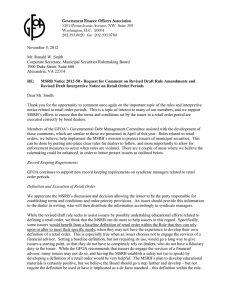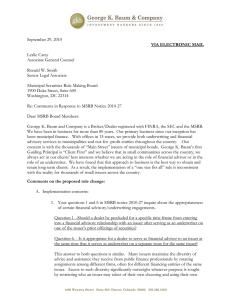Richard Li 200 E Wells St, #404 Milwaukee, WI 53202 March 7, 2012
advertisement
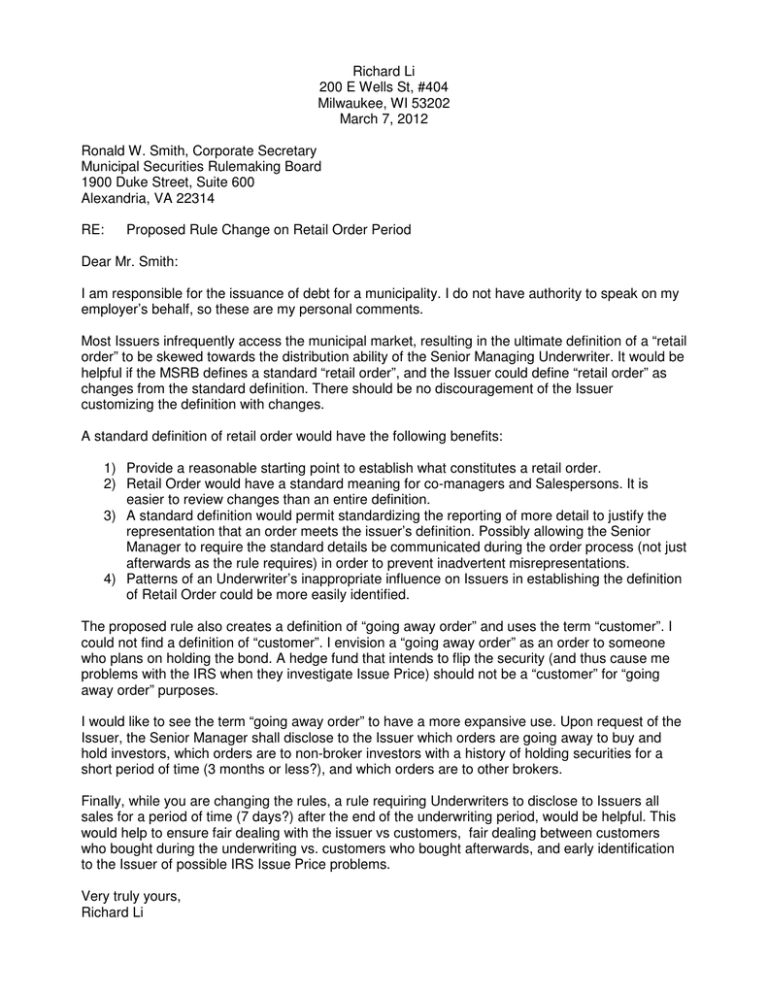
Richard Li 200 E Wells St, #404 Milwaukee, WI 53202 March 7, 2012 Ronald W. Smith, Corporate Secretary Municipal Securities Rulemaking Board 1900 Duke Street, Suite 600 Alexandria, VA 22314 RE: Proposed Rule Change on Retail Order Period Dear Mr. Smith: I am responsible for the issuance of debt for a municipality. I do not have authority to speak on my employer’s behalf, so these are my personal comments. Most Issuers infrequently access the municipal market, resulting in the ultimate definition of a “retail order” to be skewed towards the distribution ability of the Senior Managing Underwriter. It would be helpful if the MSRB defines a standard “retail order”, and the Issuer could define “retail order” as changes from the standard definition. There should be no discouragement of the Issuer customizing the definition with changes. A standard definition of retail order would have the following benefits: 1) Provide a reasonable starting point to establish what constitutes a retail order. 2) Retail Order would have a standard meaning for co-managers and Salespersons. It is easier to review changes than an entire definition. 3) A standard definition would permit standardizing the reporting of more detail to justify the representation that an order meets the issuer’s definition. Possibly allowing the Senior Manager to require the standard details be communicated during the order process (not just afterwards as the rule requires) in order to prevent inadvertent misrepresentations. 4) Patterns of an Underwriter’s inappropriate influence on Issuers in establishing the definition of Retail Order could be more easily identified. The proposed rule also creates a definition of “going away order” and uses the term “customer”. I could not find a definition of “customer”. I envision a “going away order” as an order to someone who plans on holding the bond. A hedge fund that intends to flip the security (and thus cause me problems with the IRS when they investigate Issue Price) should not be a “customer” for “going away order” purposes. I would like to see the term “going away order” to have a more expansive use. Upon request of the Issuer, the Senior Manager shall disclose to the Issuer which orders are going away to buy and hold investors, which orders are to non-broker investors with a history of holding securities for a short period of time (3 months or less?), and which orders are to other brokers. Finally, while you are changing the rules, a rule requiring Underwriters to disclose to Issuers all sales for a period of time (7 days?) after the end of the underwriting period, would be helpful. This would help to ensure fair dealing with the issuer vs customers, fair dealing between customers who bought during the underwriting vs. customers who bought afterwards, and early identification to the Issuer of possible IRS Issue Price problems. Very truly yours, Richard Li
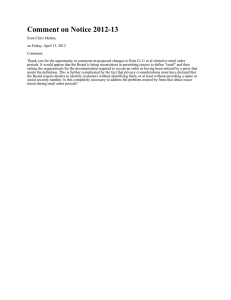

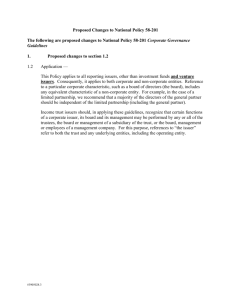
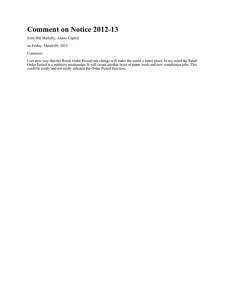
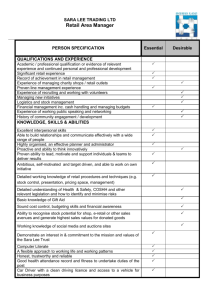
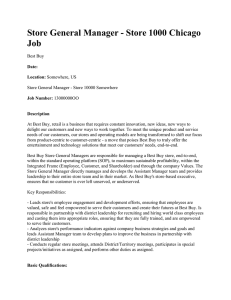
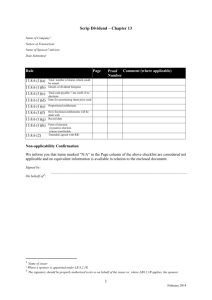

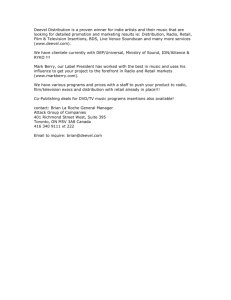
![[Company Name]](http://s3.studylib.net/store/data/009539562_1-20bba15a42c559f6e2eb5e3c0022265d-300x300.png)
